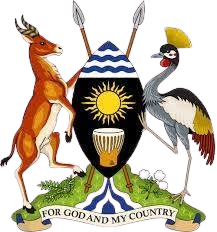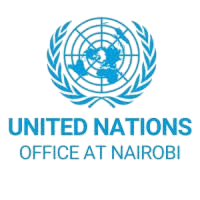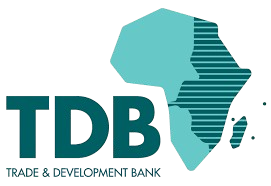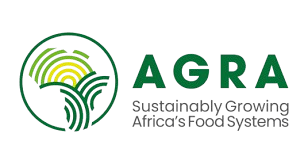
Person's With Disability (PWD)
Can I Import A Duty-Free Car?
If you are a person living with disability (PWD) in Kenya, you may be eligible to import a vehicle duty free. This privilege is given by the government of Kenya with the aim of enhancing mobility and independence among PWDs.
To qualify, however, you will be required to meet a set of specific criteria as outlined below:
Eligibility Criteria for Duty-Free Vehicle Importation
Registration with NCPWD:
To qualify, you must be officially registered with the National Council for Persons with Disabilities (NCPWD). This registration is crucial as it provides you with a valid NCPWD ID card, which serves as proof of your status as a person with a disability.
Vehicle Usage:
The vehicle you intend to import must be for personal use only. This means it cannot be used for commercial purposes, ensuring that the benefit is directed towards enhancing your personal mobility.
Frequency of Importation:
You are permitted to import one duty-free vehicle every four years. This policy is designed to prevent abuse of the system and ensure that the benefits are available to a broader range of individuals.
Vehicle Modification:
While the vehicle does not necessarily need to be specially modified, it should be suitable for your mobility needs. This could include features that make it easier for you to enter, exit, and operate the vehicle.
Required Documents for Application
When applying for the duty exemption, you will need to prepare the following documents:
Application Letter:
A formal letter addressed to the Commissioner of Customs & Border Control, requesting the duty exemption.
Medical Certificate:
An original certificate from a registered medical practitioner that details your disability. This document is essential for verifying your eligibility and any copies should be certified by a commissioner of oaths.
Recommendation Letter:
A letter from the Association for the Physically Disabled of Kenya or the NCPWD, endorsing your application.
Driving License:
A copy of your driving license, which should have the appropriate endorsements. If you are unable to drive e.g. due to mental, visual or hearing impairments you can nominate a driver, who must provide their license, ID, and a sworn affidavit confirming their nomination.
Vehicle Documents:
Commercial Invoice: This should be addressed to you and should give details of the vehicle you intend to import.
Bill of Lading: This is the document of ownership and should be in your name
Tax Documents:
Tax Compliance Certificate: This shows that you are compliant with tax obligations.
Income Tax Exemption Certificate: If applicable, this certificate can further support your application.
Proof of Payment:
Attach bank statements and transfer slips that show the payments you made for the vehicle.
Identification:
A copy of your National ID and your NCPWD ID card.
Test Drive Report:
This report must be conducted in the presence of a customs officer at the point of entry.
Application Process
- Document Preparation:Gather all the required documents listed above to ensure a complete application.
- Submission: Submit your application to the NCPWD for verification. This step is crucial as it ensures that your application meets the necessary criteria.
- Interview/Vetting:You may be required to attend a physical interview as part of the vetting process.
- Forwarding to KRA:Upon receiving a recommendation from the NCPWD, your application will be forwarded to the Kenya Revenue Authority (KRA) via the iTax system.
- Approval: If your application is approved, KRA will issue a tax exemption certificate that is valid for five years.
Additional Considerations
Replacement Policy:
After four years, you can replace the duty-free vehicle, provided you have proof of disposal of the previously imported vehicle. This ensures that the benefits continue to support your mobility needs.
Vehicle Modification:
Although not mandatory, modifying the vehicle to suit your specific disability can strengthen your application and enhance your driving experience.
Legal Provisions:
The duty exemption is governed by specific legal frameworks, including the 5th Schedule Part A Item 8 of the East African Community Customs Management Act and the 1st Schedule Part 1, Section A Item 39 of the VAT Act 2013. Understanding these legal provisions can help you navigate the application process more effectively.
Duty-Free Vehicle Sale for PWDs - FAQ
Yes. Persons with disabilities (PWDs) who are registered with the National Council for Persons with Disabilities (NCPWD) are eligible to import a vehicle duty-free, provided it is for personal use and meets the set requirements by the Kenya Revenue Authority (KRA).
Not necessarily. The vehicle should be suitable for your mobility—this can include features that make it easier for you to drive or be driven in. Modification is not mandatory but may help strengthen your case.
You can import one duty-free vehicle every four years. To import another vehicle, you must provide proof of disposal of the previous one.
- Be registered with NCPWD and hold a valid NCPWD ID..
- Use the car strictly for personal purposes (not for business).
- Import only one vehicle every four years.
- Ensure the car is suitable for your mobility needs.
Yes. If your disability prevents you from driving, you can nominate a driver. The nominated person must provide a copy of their ID, driving license, and a sworn affidavit confirming their role.
Begin by identifying a trusted import agent, such as Croton Motors, who can assist you in selecting a vehicle based on your preferences, including usage, size, budget, and specifications.















